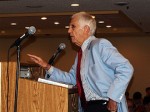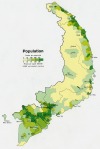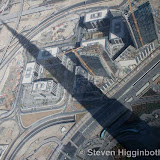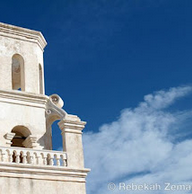
photo credit: terryballard
hosted a screening of
The Most Dangerous Man in America, a documentary by
Judith Ehrlich and
Rick Goldsmith. I’ll leave the issue of
awards nominations to the entertainment professionals who know far more about the process than I do. Furthermore, the documentary does a fantastic job of telling Ellsberg’s story through family experiences, military service, a Pentagon career, and through the decision making process of leaking the
Rand Corporation‘s report – over 7,000 pages on Vietnam – to
The New York Times, and there’s lots of material written on the
Supreme Court‘s 1971 decision
New York Times Co. v. United States.

Perry-Castañeda Library Map Collection
What I’d like to think about here are the various journeys – physical, emotional, and ethical, just to name a few – that led to the publication of top secret papers and, subsequently, historical decisions in both political policy and First Amendment law. No one in this story knew what was ahead or, once events started, how or where they would end.
Ellsberg’s journey from childhood to adulthood influenced his views on responsibility. Ellsberg also moved from military service to a career as a military analyst – a transition that took him behind the scenes of military decision making and into clearance “beyond top secret.” His trip to Vietnam was made in this capacity, where he saw for himself the conditions on the ground from troop movements and “non-existent patrols” to experiencing combat with both its effects on American soldiers and Vietnamese civilians. Ultimately, Ellsberg went from certainty to uncertainty. People he met along the way, from colleagues to followers of Gandhi, affected the way he saw the world and how he made decisions. Watching children pick through burning debris for a favorite doll in person during his trip in Vietnam gave him a different perspective by showing him things he couldn’t see from his desk in Santa Monica, California.
Once the Pentagon Papers were leaked to reporters, a whole new set of people faced new set of decisions. Reporters had to consider their responsibilities to their editors and the public as well as the risk to their sources. Editors had to consider their reporters, their publications, and the public. Lawyers for all involved had to weigh the pros and cons. In the end, The New York Times ran the story, and when they were ordered to stop, so did The Washington Post, then The Boston Globe – and then papers all across the country. The case worked its way all the way through the system until the Supreme Court’s Decision.

1972 population map of Vietnam from Perry-Castañeda Library Map Collection
Watching this movie as a journalism student in the
Cronkite School‘s First Amendment forum definitely added a personal angle to the experience. While situations like the Pentagon Papers may be once in a lifetime or only for a few, it’s very likely that I’ll encounter ethical situations, quite possibly with sources and sensitive material.
I’ll have to make my own decisions, and no matter how helpful a rule book or ethical code may be, in the end, I agree with my professor – no hypothetical situation will have all the information – so there’s no way to completely prepare for the real life situations that require handling on a case by case basis. In real life and real time, you may have to make tough decisions without all the information.
Every bit of preparation and guidance along the way will be helpful when a moment comes that I’m on the spot alone. My mother has compared it to learning CPR without knowing when you’ll use it, so that when an accident happens, you start with an idea of what to do, even if it has to be adapted to the situation in front of you – waiting to learn life skills till the accident’s already happened won’t give you much time to prepare.
Would I have made the same decisions that reporters like Neil Sheehan & Hedrick Smith made? Even with all the information available today, can I even answer that question without being there in that time and place?
At one point in the film, Ellsberg says, “The people there were more than pictures for me and they were more than numbers.” I think that ultimately, that’s what it may always come down to. Numbers are predictable, understandable, logical. There’s a clarity and neatness – at least before the fixing begins – that makes working with them simple. People? Not so much.
If you’ve ever been on the spot, what helped you make decisions along the way?

photo credit: Jeb Ro
Like this:
Like Loading...
 A short but sweet run through of world news…
A short but sweet run through of world news… Egypt’s also been going through tensions, and Tuesday’s New Zealand Herald gives some context to one city’s experiences with
Egypt’s also been going through tensions, and Tuesday’s New Zealand Herald gives some context to one city’s experiences with 




















